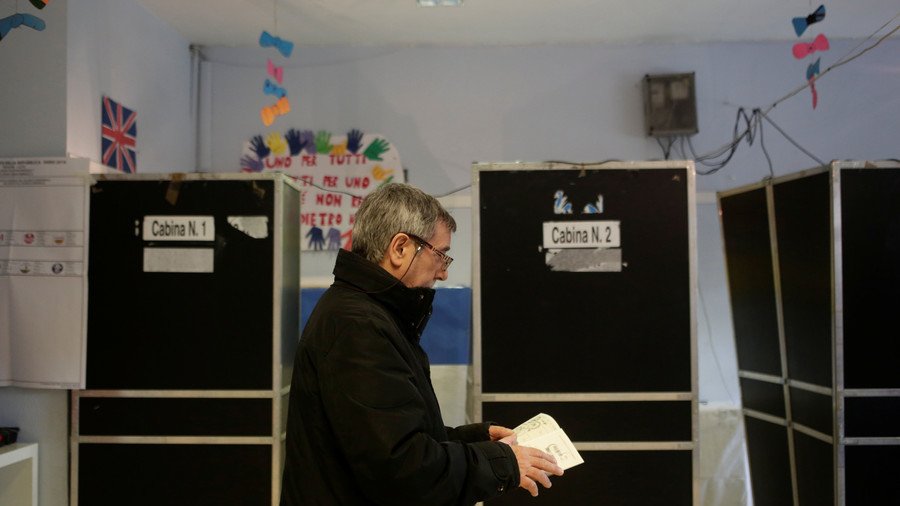Italy’s ruling center-left ‘pretty much gone,’ tripped on migration issue

The shake-up of the Italian political scene that saw voters ditch the ruling center-left and boost anti-establishment forces – according to preliminary results – is rooted in the migration problem, Professor Marco Bassani told RT.
“There is one clear result that is though the Democratic Party that was in power is gone, [it will get] 20 or 21 percent, we’ll see, but it’s pretty much gone. The issue was so clearly that of immigration that bother them a lot and clearly created that mess for them,” Bassani, professor of the history of political theory at the University of Milan, told RT.
The final results released by the Italian Interior Ministry on Monday showed that the center-left Democratic Party received slightly less than 19 percent of the vote, meaning it’s likely to leave the government and go into opposition. The success of the Euroskeptic Five Star Movement, which has gained over 32 percent of the vote nationwide, came mainly from the south, can be explained by the uneven distribution of wealth across the country. The southern part has been “very much on welfare for the past 40 years,” Bassani said.
Speaking on possible coalition scenarios, Bassani noted that although he doesn’t see “any coalition coming out directly” from the elections, it should not be ruled out that the anti-immigration Lega would eventually build a coalition with the Five Star Movement.
“Probably [Lega chairman] Matteo Salvini will be a little bit ahead of [Silvio Berlusconi’s center-right Forza Italia] and he will be tempted to form a government with the Five Star [Movement]. He said ‘No, I will not do that,’ but he will be tempted,” Bassani said. He noted that “there is nothing in the Italian law that prohibits that.”
While Lega, formerly Lega Nord, is often referred to in the international media as ‘far-right’, this term is not quite accurate, Lorenzo Pregliasco, professor of political science at the University of Bologna, told RT.
READ MORE: N. Italy referenda: Richest regions of Veneto & Lombardy go to polls over autonomy
“They were basically a party for the interests of the north, of the old country, so they moved quite on the right of the political spectrum in the last year, but they are not seen as a far-right party, even if you can tell that they are actually,” Pregliasco argued. He noted that the “actual” far-right parties gained a very little of the vote at the election.
The image of Lega as anti-establishment party is crafted artificially, he argued, pointing that it is in fact “a government party.” It governed two of the richest regions in Italy, Lombardy and Veneto, so they are “not quite an anti-establishment party they would like to be seen by the electors.”
Lega has been governing Lombardy since 2013 and Veneto since 2010.
Think your friends would be interested? Share this story!















